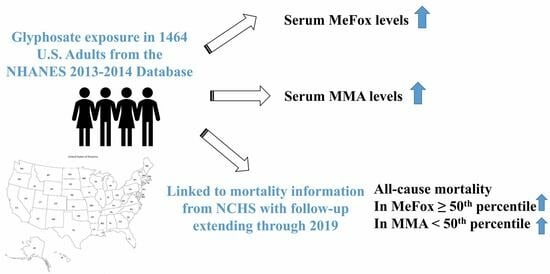- Longevity Daily - Live Better For Longer
- Posts
- The Invisible Chemical Shortening Your Lifespan
The Invisible Chemical Shortening Your Lifespan
Banned in many countries. Still sprayed on your food. Glyphosate might be the most underreported threat to your healthspan.
You’ve probably seen the name Roundup on your neighbour’s weed killer or your local council’s park maintenance truck.
Its active ingredient, glyphosate, is now the most widely used herbicide in human history with over 6 billion kilograms sprayed globally since the 1970s.
Despite being banned in many countries, glyphosate remains widely used across the U.S., Canada, Australia and the UK. Meanwhile, thousands of lawsuits have already linked it to cancer, infertility, and autoimmune disease, yet regulatory agencies continue to look the other way.
If longevity is about building a body that lasts, then this invisible toxin may be silently doing the opposite.
Quick Take:
🟠 Cost: Moderate - organic foods cost more upfront
🟠 Actionable: Moderate - takes awareness and commitment
🔴 Impact: High - damages gut, depletes minerals, accelerates aging
Here’s what we’ve got for you today:
Glyphosate is a broad-spectrum antibiotic disguised as a weed killer
It disrupts your gut microbiome, hormones, and immune system
Even “healthy” foods like oats, wheat, and chickpeas are often contaminated
Avoiding exposure and supporting detox pathways can dramatically protect your healthspan

Glyphosate was originally patented in 1964 as an industrial chelating agent for removing mineral deposits from pipes, then developed by Monsanto and introduced in 1974 as the active ingredient in Roundup herbicide.
Decades later in 2010, Monsanto also patented it as an antibiotic due to its antimicrobial properties against certain organisms, including malaria-causing protozoa.
As a chelating agent, it binds essential minerals like magnesium, zinc, and manganese, stripping them from both soil and your body. But the antimicrobial properties pose an even deeper threat: glyphosate disrupts the shikimate pathway, which bacteria, fungi, and plants use to produce essential amino acids.
This means it directly targets the beneficial gut bacteria responsible for producing serotonin, melatonin, and short-chain fatty acids, compounds critical for mental health, sleep, and cellular repair.
The downstream effects include impaired nutrient absorption, increased intestinal permeability ("leaky gut"), systemic inflammation, and elevated autoimmune and cancer risk. We are, in effect, coating our food supply - and our biology in a substance that functions as both a mineral stripper and a broad-spectrum antimicrobial.

Glyphosate Legal Battles: A Global Reckoning
Monsanto and parent company Bayer have paid out over $11 billion to settle approximately 170,000 Roundup lawsuits, with the bulk coming from a $10.9 billion settlement in June 2020 that resolved about 125,000 cancer claims. The litigation represents one of the largest mass tort cases in history.
United States Class Actions
The U.S. has seen three distinct types of class action lawsuits against Monsanto:
The primary litigation involves personal injury claims from agricultural workers, landscapers, and gardeners who developed non-Hodgkin lymphoma after Roundup exposure, with over 4,470 cases currently pending in multidistrict litigation in California. In February 2019, a consumer protection class action was filed focusing on deceptive labeling practices, proposing a $39.55 million settlement for product refunds. A separate 2017 class action alleged false advertising, claiming Monsanto deceived consumers by stating glyphosate only targets plant enzymes when it also affects human gut bacteria.
The Influence Machine Behind Regulatory Inaction
Despite mounting evidence and billions paid in settlements, regulatory agencies have been notably hesitant to restrict glyphosate use. Monsanto's political action committee donated over $10 million to various candidates between 2003 and 2013, while a notorious "revolving door" see’s executives move between Monsanto VP positions and senior FDA roles, and others move from EPA leadership to Monsanto VP and back to EPA deputy administrator

Glyphosate exposure accelerates biological aging through multiple pathways: depleting essential minerals needed for DNA repair, disrupting the gut microbiome that produces longevity-promoting metabolites, and triggering chronic inflammation, which is the root cause of most age-related diseases.
While you can't escape glyphosate completely, you can minimize your exposure and boost your body's defence systems.
1. Audit your food
Prioritize organic products and produce.
The only reliable way to avoid glyphosate is: USDA/EU/ACO Organic certification - which prohibits glyphosate use (though some cross-contamination from drift is possible)
Especially The Dirty Dozen, and heavily sprayed crops: oats, wheat, corn, soy, canola, chickpeas.
Wash non-organic produce in baking soda + water (shown to remove surface residues).
2. Support your gut
Eat fermented foods: sauerkraut, kefir, kimchi, yogurt.
Add prebiotic fibers: garlic, leeks, asparagus, green bananas.
Supplement with probiotics (Lactobacillus, Bifidobacterium strains).
3. Detoxify naturally
Cruciferous vegetables (broccoli, kale) boost glutathione production
Ensure adequate magnesium + zinc to replace what glyphosate depletes
Sweat regularly: sauna, exercise, or hot baths accelerate toxin removal
4. Test your exposure
Order a Mosaic Diagnostics Glyphosate Urine Test.
These can reveal your personal exposure levels, often the wake-up call people need.
⚠️ Environmental Exposure Warning
If you live near farms, golf courses, railroad tracks, or public parks, you're at high risk from pesticide drift, airborne glyphosate particles that settle on your property, outdoor furniture, and get tracked inside your home. Minimize exposure by removing shoes at the door, and washing hands frequently after outdoor activities.

Longevity isn’t always about what you add, it’s equally about what you remove.
You can have perfect habits, eat organic, and still be fighting a daily chemical assault from something you never see.
Our world doesn’t need more health hacks, it needs health accountability. But until that comes, the responsibility of making informed choices lies with us.
To your awareness and resilience,
Longevity Daily
P.S. We're preparing a special Q&A edition of Longevity Daily, and we want to hear from YOU. What's your biggest question about living longer, better? Reply to this email and we might feature your question (and our deep-dive answer) in this upcoming edition.
How did you like today's newsletter? |

